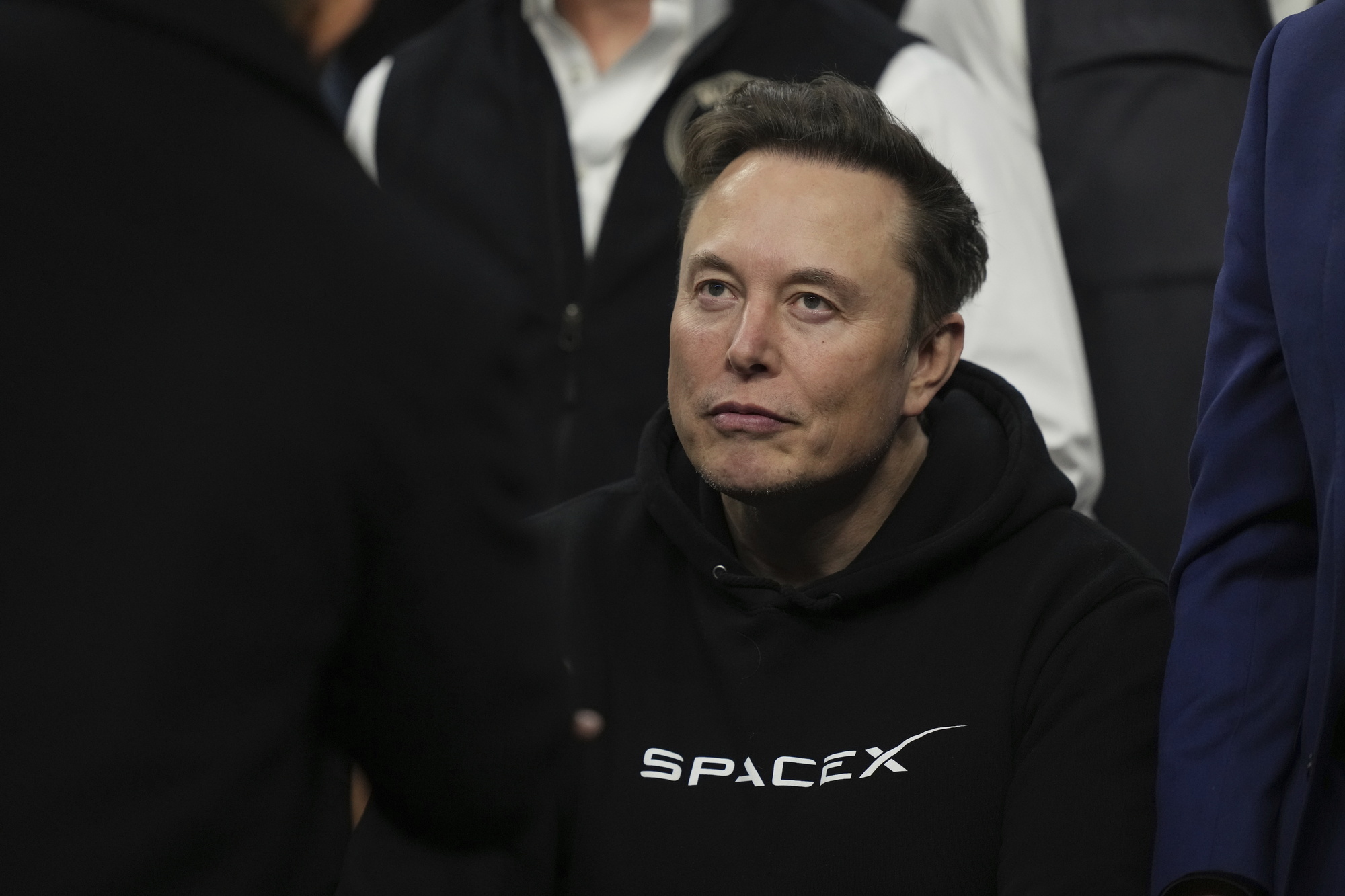Business
Musk Signals Challenging Times for Tesla Amidst Market Pressures

Elon Musk has indicated that Tesla is bracing for a challenging period following one of the company’s most difficult quarters in over a decade. During a recent earnings call, Musk noted that Tesla is entering a transition phase that could last a year or more, as the automaker contends with the loss of electric vehicle incentives in the United States and the need for time to fully implement autonomous vehicle technology.
“Yeah, we probably could have a few rough quarters,” Musk stated. “But once you get to autonomy at scale in the second half of next year, certainly by the end of next year, I would be surprised if Tesla’s economics are not very compelling.” His remarks came as Tesla’s shares fell as much as 5.3% in after-hours trading, reflecting a broader trend this year where the stock has already dropped 18%.
Tesla’s latest financial results revealed adjusted earnings of $0.40 per share, which fell short of Wall Street’s reduced expectations. Revenue declined by 12% to $22.5 billion, marking the steepest decrease in at least ten years. The company reported a significant slump in vehicle deliveries and a drop in the average selling price of its cars. Additionally, Tesla experienced a decline in sales from its energy generation and storage segment, with tariff-related costs increasing by approximately $300 million. These tariffs are anticipated to further impact the company in the upcoming quarters.
As Tesla’s traditional car business struggles amid growing competition and the aftermath of Musk’s political engagements, investors have largely focused on his long-term vision involving artificial intelligence and autonomous driving. Musk acknowledged that the company will face “teething pains” as it invests in these areas. During the conference call, executives spent a considerable amount of time discussing plans for a robotaxi service and a new Tesla diner, rather than diving deep into the electric vehicle segment.
Musk also expressed his desire for a larger ownership stake in Tesla, emphasizing that such a move is crucial to safeguarding his position against potential activist investors. Following a court ruling that significantly reduced his multibillion-dollar payout, the company is appealing the decision and has relocated its incorporation to Texas. “I think my control over Tesla should be enough to ensure that it goes in a good direction, but not so much control that I can’t be thrown out if I go crazy,” Musk remarked.
The polarisation of Tesla’s brand has intensified, particularly due to Musk’s support for former President Trump. His attempts to cut government spending during a brief role in the administration drew criticism from many of Tesla’s traditionally left-leaning consumers. This political involvement has raised concerns among some investors about potential distractions from the company’s core business.
In recent weeks, several analysts have adjusted their expectations downward. Chief Financial Officer Vaibhav Taneja highlighted that the recently enacted US tax-and-spending bill is likely to negatively affect demand. Revenue from regulatory credits, an important revenue stream for Tesla, plummeted by more than 26% to $439 million in the second quarter, down from $595 million in the first quarter and $890 million in the same period last year. This revenue is expected to decline further as the current administration eliminates penalties for automakers that do not meet federal fuel economy standards.
In contrast to Tesla’s struggles, Alphabet, the parent company of Google, reported a surge in demand for its AI products, which has resulted in a significant increase in capital expenditures. For 2025, Alphabet has raised its capital spending forecast to $85 billion, which is $10 billion higher than previously anticipated. While the company surpassed expectations for second-quarter revenue and profit, its stock initially fell in after-hours trading before rebounding after CEO Sundar Pichai justified the investments necessary to meet customer demand.
“Our AI infrastructure investments are crucial to meeting the growth in demand from cloud customers,” Pichai said during a call following the earnings report. With competitors like Microsoft’s OpenAI and Meta Platforms Inc heavily investing in AI, Alphabet is under pressure to keep pace. The urgency of this competition is particularly pronounced for Google, as rival companies develop chatbots that could potentially overshadow its flagship search product.
Alphabet’s recent quarter was strong across the board, with sales, excluding partner payouts, reaching $81.7 billion. This figure surpassed analysts’ average projections of $79.6 billion, according to data compiled by Bloomberg. As Tesla navigates its impending challenges, Alphabet appears poised to leverage its AI investments to bolster growth in an increasingly competitive landscape.
-

 Top Stories3 months ago
Top Stories3 months agoTributes Surge for 9-Year-Old Leon Briody After Cancer Battle
-

 Entertainment4 months ago
Entertainment4 months agoAimee Osbourne Joins Family for Emotional Tribute to Ozzy
-

 Politics4 months ago
Politics4 months agoDanny Healy-Rae Considers Complaint After Altercation with Garda
-

 Top Stories4 months ago
Top Stories4 months agoIreland Enjoys Summer Heat as Hurricane Erin Approaches Atlantic
-

 World5 months ago
World5 months agoHawaii Commemorates 80 Years Since Hiroshima Bombing with Ceremony
-

 Top Stories3 months ago
Top Stories3 months agoNewcastle West Woman Patricia Foley Found Safe After Urgent Search
-

 Top Stories5 months ago
Top Stories5 months agoFianna Fáil TDs Urgently Consider Maire Geoghegan-Quinn for Presidency
-

 World5 months ago
World5 months agoCouple Convicted of Murdering Two-Year-Old Grandson in Wales
-

 World5 months ago
World5 months agoGaza Aid Distribution Tragedy: 20 Killed Amid Ongoing Violence
-

 World5 months ago
World5 months agoAristocrat Constance Marten and Partner Convicted of Infant Murder
-

 Top Stories4 months ago
Top Stories4 months agoClimbing Errigal: A Must-Do Summer Adventure in Donegal
-

 Top Stories4 months ago
Top Stories4 months agoHike Donegal’s Errigal Mountain NOW for Unforgettable Summer Views









